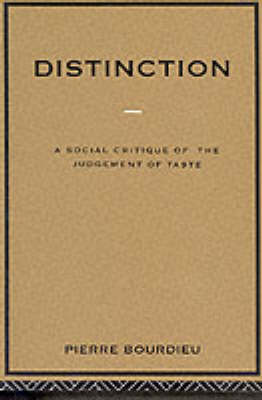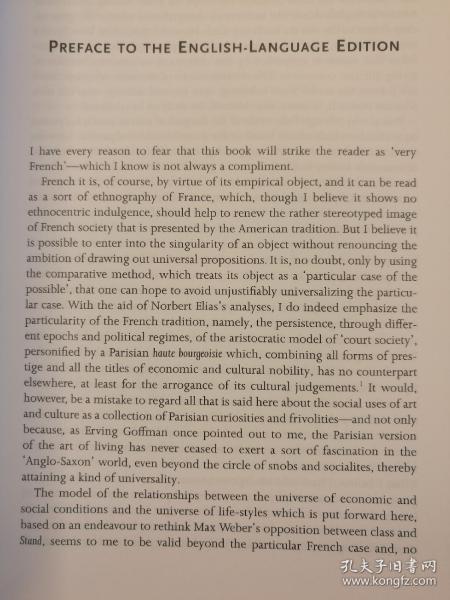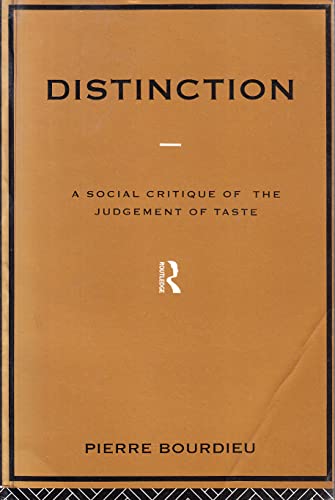
But this logic does not explain why such and such standard of taste sustains its effectiveness through historical changes. This is the way how bourgeois legitimate art has been recognized as such.


Roughly saying, different taste is set by the differentiation of belief system. According to this argument, there would have been no real differences if the collective belief was not induced to the classified individuals through differentiated education. Let me think over this matter for a while with the following sentence: “The official differences produced by academic classification tend to produce (or reinforce) real differences by inducing in the classified individuals a collectively recognized and supported belief in the differences…”(25). If the distribution of cultural capital is already established and determined by the distribution of wealth (economic capital) and other accompanying capitals, how can classified distinctions of taste survive in historical changes? Put it differently, how can a set of specific works of art, which were exclusively possessed by a specific social class and at a specific time and space, in the status of ‘art’ in the sense of high art, even after centuries has passed? Though Distinction is dedicated to explain these questions, there seems inherently a vicious circle in the presupposition. But how could this educational capital or social origin have been transmitted to cultural capital? How does different social position (thus class disposition) integrate different level of cultural capital (thus different aesthetic perception)?

In short, aesthetic taste is a product of the social differentiation.

My impression of Bourdieu’s Distinction is that his radical social theory of class differentiation does not leave any room for subjective position, focusing on the deepest objectification of the “nature of the game.” Thus for him, cultural capital, which was assumed to be derived from the most subjective (but disinterested) taste, that is, from the ‘aesthetic judgment’ in Kantian sense, is not just a result of pure independent faculty of human being, but the very effect of the accumulation of academic and family capital. Pierre Bourdieu, Distinction: Social Critique of the Judgement of Taste, Harvard UP, 1984.


 0 kommentar(er)
0 kommentar(er)
